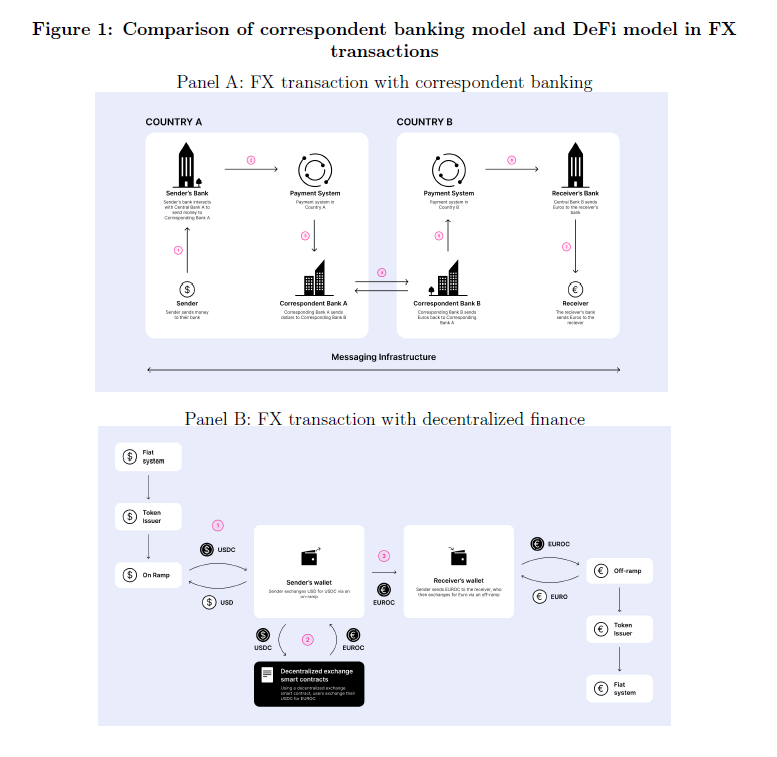

The researchers compared the average cost of remittances according to World Bank data with estimated costs of trading USDC and EUROC stablecoins at Uniswap.
If the foreign exchange market starts using decentralized finance (DeFi) protocols instead of the current centralized systems, the cost of remittances could be reduced by “as much as 80%,” according to a Jan. 19 paper jointly published by researchers at Circle and Uniswap.
On-chain foreign exchange (FX) is a new model of global value exchange that offers a faster, cheaper, and more efficient alternative for cross-border payments.
Our recent research paper with @circle has it all https://t.co/NGniRo8yrp
— Uniswap Labs (@Uniswap) January 19, 2023
The paper, titled “On-chain Foreign Exchange and Cross-border Payments,” was written by Uniswap Data Scientist Austin Adams, Circle Chief Economist Gordon Liao, Mary Catherine Lader, David Puth and Xin Wan.
The authors studied the trading activity of Circle’s US Dollar Coin (USDC) and Euro Coin (EUROC) on Uniswap from July 2022 through January. They found that the pair did $128m in volume total, with some days having volume as high as $8 million.
During this time, the stablecoins USDC and EUROC traded within a few basis points of exchange rates found in the wholesale forex market for their backing currencies, USD and EUR. In the authors’ view, this showed that the DeFi forex market was providing a reasonable alternative to traditional forex, with good price efficiency, despite its smaller trading volume.
Related: DeFi auditor nets $40,000 for identifying Uniswap vulnerability
However, the researchers wanted to know if using DeFi protocols like Uniswap could provide savings to participants in the forex market. So they analyzed the costs associated with the traditional “correspondent banking model” of forex vs. those associated with DeFi forex.

They used World Bank estimates to determine the price of a $500 remittance done through the global banking system. They then compared this to the cost of buying stablecoin (either USDC or EUROC) through an exchange, swapping it for the other coin on Uniswap, sending it to another person, and having the other person cash it out at an exchange.
The researcher concluded that the DeFi model causes users to incur many different fees, including exchange commissions, DeFi trading fees, network fees, and fees for transferring cash to and from an exchange. Even so, the fees are up to 80% less than the average price of remittances, based on World Bank estimates.
Circle released the EUROC in June 2022. EUR/USD is the most widely traded currency pair in the world, according to Investopedia.




